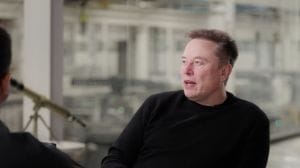Russia-Ukraine war escalating: What Kyiv, Moscow, G7 are doing
Ukraine President Volodymyr Zelenskiy has met G7 countries, even as the UN is planning to take up a resolution against Russia. Here is all you need to know.
 An injured woman receives medical treatment at the scene of Russian shelling, in Kyiv, Ukraine, Oct. 10, 2022. (AP Photo/Efrem Lukatsky, File)
An injured woman receives medical treatment at the scene of Russian shelling, in Kyiv, Ukraine, Oct. 10, 2022. (AP Photo/Efrem Lukatsky, File)Ukraine President Volodymyr Zelenskiy is meeting G7 countries virtually on Tuesday to ask for more air defence weapons, among other demands. US President Joe Biden has said he is willing to supply more air defence systems to Ukraine after Russia bombed several of its key cities Monday (October 10), killing 19, injuring scores and inflicting devastating damage on critical infrastructure. The strikes continued in the southeastern town of Zaporizhzhia on Tuesday.
Meanwhile, the North Atlantic Treaty Organisation (NATO) is considering holding a virtual summit, a European diplomat told Reuters on Tuesday. No date has been fixed for the summit. While Ukraine has applied to join NATO, whose members are obliged to defend each other against invasions, it has not yet been granted membership.
With Russia looking determined to exacerbate hostilities, what is the international community planning, and what is Moscow’s position? We explain.
What happened on Monday?
In a dramatic escalation of its attack on Ukarine, Russia on Monday rained missiles down on 15 of its cities, including the capital Kyiv and the relatively peaceful Lviv, hitting civilian targets and important infrastructure, such railway lines, electric and water supply lines and roads. Russian President Vladimir Putin said the strikes were “revenge” for damaging the Kerch Bridge, which connects Russia and Crimea. Putin also vowed a “tough” and “proportionate” response to further Ukraine attacks. “No one should have any doubts about it,” he said.
Zelenskiy said Russia was trying to wipe Ukraine “off the face of earth”. “They are trying to destroy us and wipe us off the face of the earth. The air raid sirens do not subside throughout Ukraine. There are missiles hitting. Unfortunately, there are dead and wounded,” he posted on Telegram.
On Tuesday, Ukrainian Foreign Minister Dmytro Kuleba said the main targets of the strikes were energy facilities, in a campaign to make life unbearable for civilians. “They’ve hit many yesterday and they hit the same and new ones today,” he wrote on Twitter.
Hundreds of settlements around Kyiv, Lviv and elsewhere were still without power on Tuesday, Deputy Interior Minister Yevheniy Yenin told a briefing, as quoted by Reuters.
How has the international community reacted?
Moscow’s actions on Monday have been met with criticism from not just Western capitals, but also the UN. A spokesperson for the UN Office of the High Commissioner for Human Rights (OHCHR) said Russia may have violated international law. “We are gravely concerned that some of the attacks appear to have targeted critical civilian infrastructure … indicating that these strikes may have violated the principles on the conduct of hostilities under international humanitarian law,” Ravina Shamdasani told a news conference on Tuesday.
“We urge the Russian Federation to refrain from further escalation, and to take all feasible measures to prevent civilian casualties and damage to civilian infrastructure,” she added
Meanwhile, India was among the countries to vote in favour of a motion rejecting Russia’s plan for a secret ballot in the UN General Assembly (UNGA) on a resolution. The draft resolution is to denounce Russia’s “illegal” annexation of four areas of Ukraine and is likely to be taken up Wednesday. Russia claims it annexed the four areas after a referendum where a majority of the residents opted for Russia.
What is happening in Russia?
A Kremlin spokesman said on Tuesday that US promises to supply more air defence systems to Ukraine will only “extend the conflict and inflict more pain for Ukraine”.
On the G7 summit, Reuters quoted the spokesman, Dmitry Peskov, as saying, “The mood of this summit is already obvious and predictable. The confrontation will continue.”
On the same day, Putin held talks with Sheikh Mohammed bin Zayed Al Nahyan, the ruler of Abu Dhabi and the president of the United Arab Emirates in St. Petersburg, hailing the OPEC+ for limiting its oil production.
Meanwhile, Russia’s ally Belarus, which has allowed Russian soldiers to use its territory, said it was deploying soldiers near Ukraine in response to “threats” it claims it faces from Kyiv and its allies. G7 countries have warned that Belarus can face more sanctions if it gets more involved in the conflict.
Within the country, sections have hailed Russia’s escalated attacks on Ukraine, coming as they do after military setbacks.
The Governor of Crimea, Sergei Aksyonov, was quoted by the Associated Press as saying that “had such actions to destroy the enemy’s infrastructure been taken every day, then we would have finished everything in May and the Kyiv regime would have been defeated”.
Ramzan Kadyrov, the strongman leader of Chechnya, a Russian region in the North Caucasus, said he was now “100% happy” with the course of the Kremlin’s “special military operation” in Ukraine.
with inputs from Reuters




- 01
- 02
- 03
- 04
- 05



































